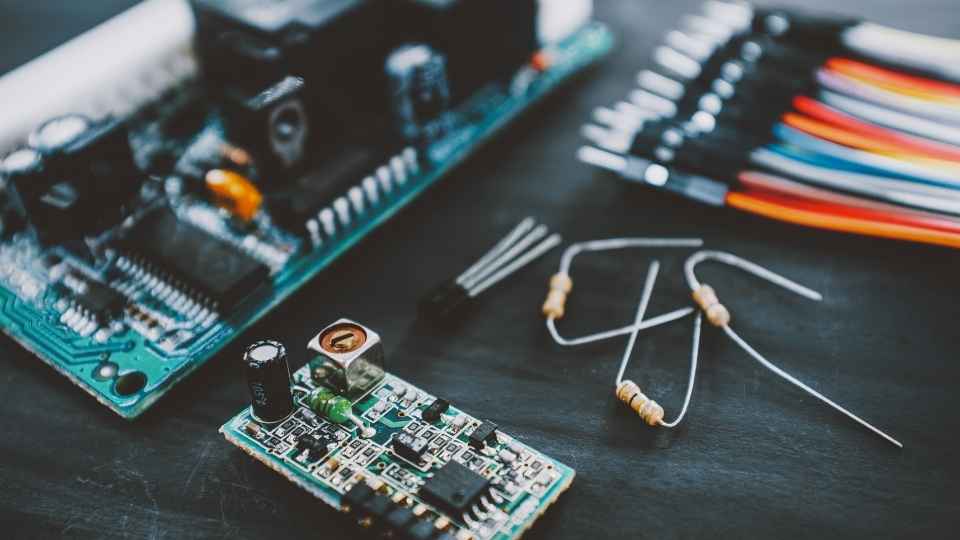
In the ever-evolving world of electrical measurement, the traditional analog multimeter finds itself pitted against its modern counterpart, the digital multimeter. As we dive into 'The Multimeter Showdown: Digital Vs. Analog – Which Measures Up?', we embark on a journey to explore and dissect the accuracy in voltage, resistance, and current measurements provided by both these instruments.
By analyzing their advantages and shortcomings, we aim to assist our freedom-seeking audience in choosing the right multimeter for their specific needs.
Key Takeaways
- Digital multimeters provide higher precision and accuracy compared to analog multimeters.
- Analog multimeters excel in measuring fast-changing parameters and offer a higher level of accuracy and detail.
- Digital multimeters have clear and readable displays, making it easier to interpret results accurately.
- When choosing a multimeter, consider factors such as accuracy, functionality, safety features, durability, and budget.
Accuracy in Voltage Measurement
In the realm of voltage measurement, accuracy plays a crucial role in determining the reliability and precision of both digital and analog multimeters. Accurate voltage measurements are essential for various applications, from electronics troubleshooting to energy consumption monitoring.
When it comes to digital multimeters (DMMs), their accuracy is primarily determined by their resolution and error specifications. Higher-resolution DMMs can provide more precise measurements due to their ability to detect smaller changes in voltage.
On the other hand, analog multimeters rely on a needle or pointer moving along a scale to indicate the measured value. While they may lack the same level of precision as DMMs, analog multimeters can still offer sufficient accuracy for many everyday electrical measurements.
Ultimately, choosing between digital and analog multimeters depends on the specific requirements of each measurement task and personal preferences regarding ease of use and readability.
Accuracy in Resistance Measurement
When it comes to measuring resistance, accuracy is of utmost importance. The accuracy in resistance measurement refers to the degree of precision and correctness in obtaining the true value of resistance.

In this short paragraph, we will explore the advantages digital multimeters have over analog ones, as well as the benefits that analog multimeters offer in terms of precision.
Additionally, we will discuss the trade-offs between these two types in achieving accurate resistance measurements.
Digital Advantages Over Analog
Digital multimeters offer numerous advantages over their analog counterparts, including higher precision and accuracy, enhanced functionality, and the ability to measure a wider range of electrical parameters.
Higher Precision and Accuracy: Digital multimeters provide more accurate readings due to their digital display and advanced internal circuitry. This allows for precise measurements with minimal error, ensuring reliable results every time.
Enhanced Functionality: Digital multimeters come equipped with various features such as auto-ranging, data logging capabilities, and built-in mathematical functions like frequency measurement or capacitance calculation. These additional functionalities make them more versatile and efficient in diverse electrical testing scenarios.
Wider Range of Electrical Parameters: Digital multimeters can measure a broader range of electrical parameters compared to their analog counterparts. They can accurately measure voltage (AC/DC), current (AC/DC), resistance, capacitance, frequency, temperature, and more. This versatility makes digital multimeters indispensable tools for professionals working in various industries.
Overall, the advancements in technology have made digital multimeters superior to analog ones in terms of precision, functionality, and measuring capabilities. As a result, they are the preferred choice for professionals seeking freedom in accurate electrical measurements.
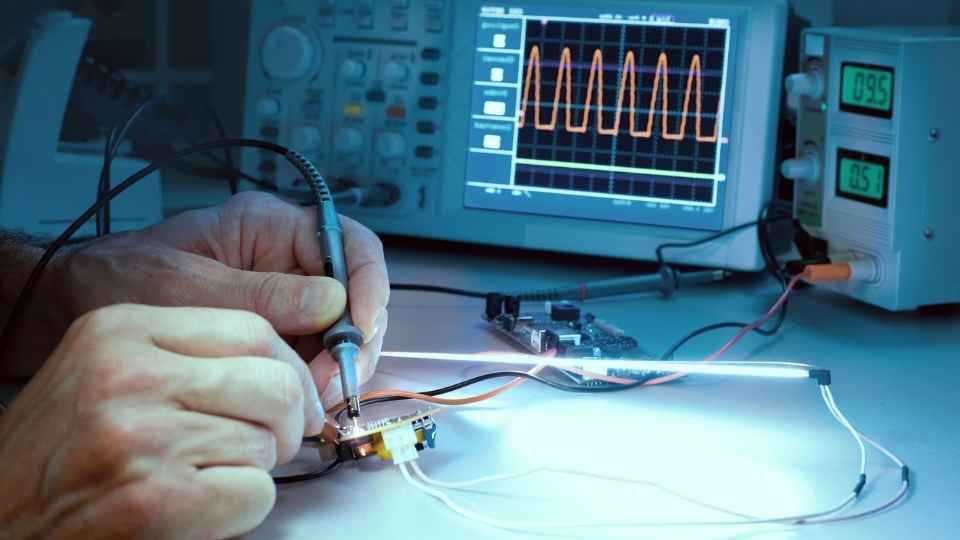
Analog Benefits for Precision
Analog devices offer distinct advantages in terms of precision, as their continuous measurements provide a higher level of accuracy and detail. Unlike digital devices that rely on discrete values, analog instruments can capture minute fluctuations and variations in the measured quantity.
This ability to provide a continuous output allows for more precise analysis and measurement of complex waveforms or signals. Analog multimeters, for instance, excel in measuring fast-changing parameters such as voltage or current, where digital meters may struggle due to their limited sampling rates.
Moreover, analog devices allow for real-time monitoring without the need for additional processing time required by digital systems. This freedom from quantization errors and conversion delays makes analog instruments well-suited for applications that demand high precision and instantaneous results.
Accuracy Trade-Offs Between Types
There are inherent trade-offs in terms of accuracy between different types of measurement devices. When comparing digital and analog multimeters, it is important to consider the following factors:
Resolution: Digital multimeters generally offer higher resolution due to their ability to display readings with decimal places. This can provide more precise measurements, especially when dealing with small values.
Sensitivity: Analog multimeters tend to have greater sensitivity compared to digital ones. They can detect subtle changes in electrical signals, making them ideal for troubleshooting delicate electronic circuits.
Accuracy over range: In terms of accuracy across a wide range of measurements, digital multimeters usually outperform analog counterparts. They exhibit less drift and provide better stability over time.
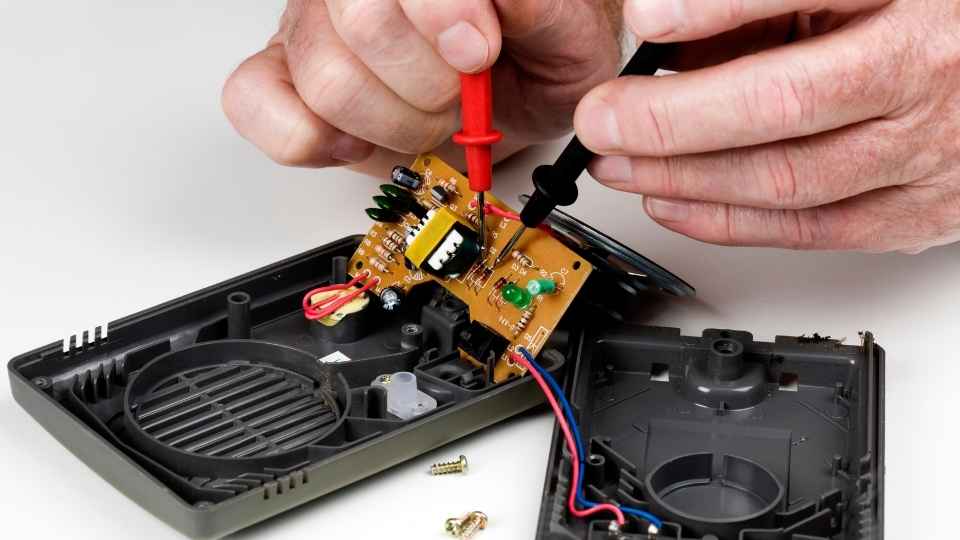
Understanding these trade-offs is crucial when selecting the right measurement device for specific applications, as accuracy plays a vital role in obtaining reliable results.
Transitioning into the subsequent section about 'accuracy in current measurement', we will further explore the factors that affect accuracy and how they can be mitigated or optimized for optimal performance.
Accuracy in Current Measurement
Precision and reliability are key factors to consider when evaluating the accuracy of current measurement in multimeters. The ability to measure current accurately is crucial for various applications in electrical engineering and other fields.
In digital multimeters (DMMs), current measurements are typically obtained by passing the current through a shunt resistor and measuring the voltage drop across it. This method provides high precision and accuracy, as DMMs have built-in amplifiers that minimize errors caused by resistance variations.
Analog multimeters, on the other hand, use a moving coil mechanism to display current values directly on a scale. While analog multimeters can provide quick readings, they may lack the same level of precision and reliability as their digital counterparts due to limitations such as parallax error and sensitivity to environmental conditions.
Therefore, for those seeking utmost accuracy in current measurement, digital multimeters are often preferred over analog ones.
Advantages of Digital Multimeters
Digital multimeters offer several advantages over their analog counterparts.

Firstly, digital multimeters provide precise voltage readings, allowing for more accurate measurements of electrical circuits.
Additionally, digital multimeters are faster and easier to use compared to analog ones, saving time and effort for technicians.
Lastly, the clear and readable display of digital multimeters makes it easier to interpret the measurement results accurately.
Precise Voltage Readings
Accurate voltage readings are crucial in electrical measurements, ensuring reliable data for troubleshooting and analysis. When it comes to precise voltage measurements, digital multimeters have distinct advantages over their analog counterparts. Here are three reasons why:
Higher resolution: Digital multimeters offer higher resolution displays, allowing for more precise measurements. This means that smaller changes in voltage can be detected and measured accurately.
Greater accuracy: Digital multimeters employ advanced circuitry and algorithms that provide greater accuracy compared to analog meters. They minimize the effects of noise and interference, resulting in more reliable voltage readings.
Enhanced features: Digital multimeters often come with additional features such as auto-ranging, which automatically selects the appropriate measurement range for the given voltage value. They also allow for data logging and connectivity options, enabling efficient analysis and documentation of test results.
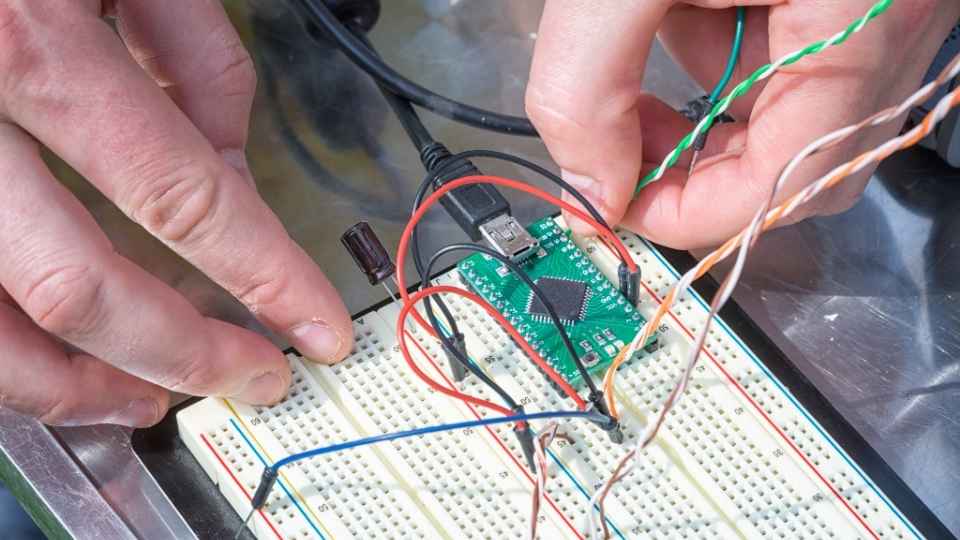
For those seeking freedom in their electrical measurements, digital multimeters provide the precision and functionality needed for accurate voltage readings.
Faster and Easier
One notable advantage of modern electrical measurement tools is their ability to provide faster and easier readings, simplifying the process of troubleshooting and analysis. In today's fast-paced world, efficiency is key, and digital multimeters excel in this aspect.
With their advanced technology, digital multimeters offer instantaneous measurements, allowing technicians to quickly identify and rectify any electrical issues. Furthermore, digital multimeters come equipped with various features such as auto-ranging capabilities and backlit displays that enhance user-friendliness. These tools eliminate the need for manual calculations or interpretation of analog scales, saving time and reducing the chances of errors.
Additionally, digital multimeters often have built-in data logging capabilities that enable users to record measurements over time for further analysis. Overall, the speed and ease provided by modern electrical measurement tools greatly benefit professionals seeking freedom from cumbersome processes in their daily work.
Clear and Readable Display
When it comes to measuring electrical quantities, having a clear and readable display is essential. Digital multimeters have made significant advancements in this regard, offering several advantages over analog counterparts.
Here are three reasons why digital multimeters excel in providing a clear and readable display:
Precision: Digital multimeters use numerical displays that provide precise measurements with high accuracy. The numbers are easy to read and interpret, ensuring accurate readings without any ambiguity.
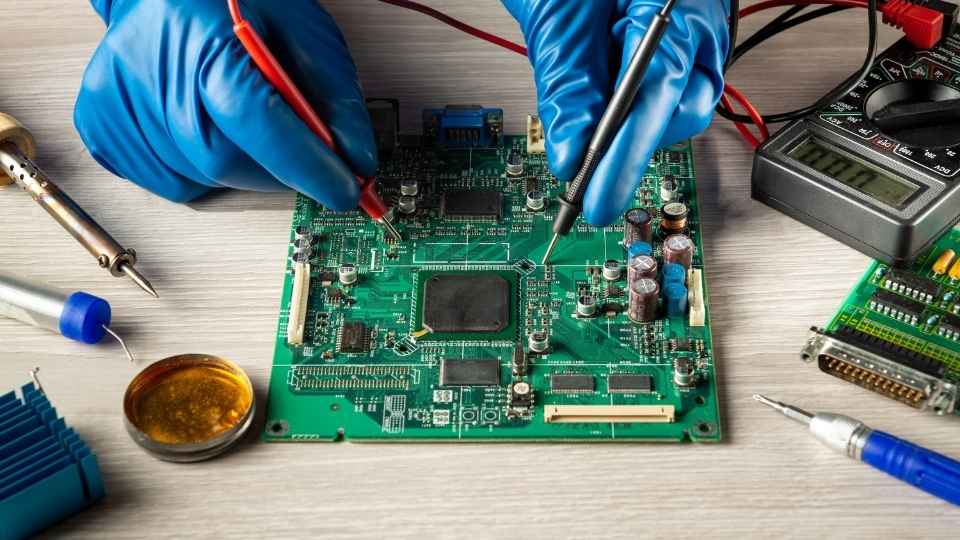
Backlighting: Many digital multimeters come equipped with built-in backlighting features, making it easier to read the display even in low light conditions or dark environments. This ensures visibility and reduces eye strain during extended periods of use.
Additional Information: Digital multimeters often include additional information on their displays, such as unit symbols, warnings, or error codes. This helps users understand the measured values better and quickly identify any issues or anomalies.
With their clear and readable displays, digital multimeters offer enhanced readability and usability compared to analog alternatives.
Now let's explore the advantages of analog multimeters...
Advantages of Analog Multimeters
Analog multimeters offer several benefits that make them a popular choice among professionals in the electrical industry.
One significant advantage is their ability to measure rapidly changing values accurately. Digital multimeters often struggle to capture and display rapid fluctuations, while analog models provide a smooth and continuous reading, allowing for precise measurements even in dynamic environments.
Additionally, analog multimeters are renowned for their durability and reliability. They are not affected by power supply issues or electronic interference, making them ideal for use in rugged work environments where stability is crucial.
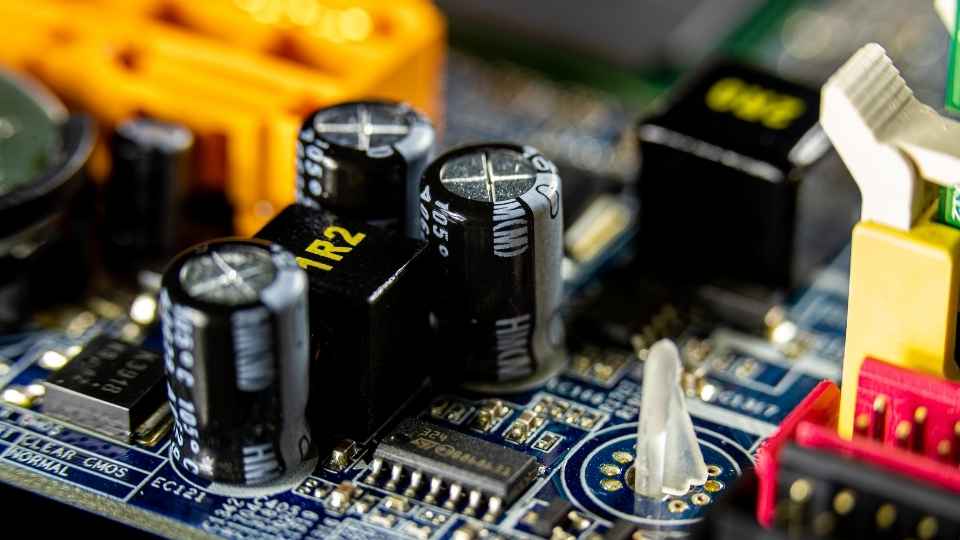
Furthermore, analog meters do not require batteries or external power sources, providing freedom from dependence on energy sources and ensuring uninterrupted measurement capabilities.
Choosing the Right Multimeter for Your Needs
When it comes to choosing the right multimeter for your needs, there are a few key factors to consider. To help you make an informed decision, here are three important considerations:
Accuracy: The accuracy of a multimeter is crucial, especially if you work with precise measurements. Look for a multimeter that has a high level of accuracy and low measurement uncertainty.
Functionality: Consider the range of functions you require from your multimeter. Do you need it for basic electrical testing or more complex tasks like frequency measurement? Ensure that the multimeter you choose offers the necessary functionality to meet your specific needs.
Safety Features: Safety should always be a top priority when working with electrical equipment. Look for a multimeter that includes safety features such as overload protection and CAT ratings to ensure your personal safety and protect against potential hazards.
Frequently Asked Questions
How Long Do Multimeters Typically Last Before Needing to Be Replaced?
Multimeters typically have a long lifespan before requiring replacement. Factors such as usage frequency, maintenance, and quality of the device can influence longevity. However, on average, multimeters can last anywhere from 5 to 10 years or even longer with proper care.
Can a Digital Multimeter Be Used to Measure AC Voltage?
Yes, a digital multimeter can be used to measure AC voltage. It provides accurate readings by converting the alternating current into a digital signal and displaying the value on its screen.

Are There Any Specific Safety Precautions to Keep in Mind When Using a Multimeter?
When using a multimeter, it is crucial to adhere to specific safety precautions. These include wearing protective gear, ensuring proper grounding, and avoiding contact with live circuits. Neglecting these measures can lead to serious injuries or even fatalities.
Can an Analog Multimeter Be Used to Measure Capacitance?
Analog multimeters can measure capacitance, but their accuracy is limited compared to digital multimeters. Digital multimeters are more precise and provide numerical readings, making them a better choice for measuring capacitance in professional settings.
What Are Some Common Troubleshooting Techniques When Encountering Inaccurate Measurements With a Multimeter?
Common troubleshooting techniques for inaccurate measurements with a multimeter include checking the calibration, ensuring proper connections, and verifying the range settings. Additionally, inspecting the test leads and replacing faulty components can help improve accuracy.
 Basic Electronics ConceptsEssential ToolsCircuit Design BasicsMicrocontrollersDIY Electronics ProjectsRoboticsPrivacy PolicyTerms And Conditions
Basic Electronics ConceptsEssential ToolsCircuit Design BasicsMicrocontrollersDIY Electronics ProjectsRoboticsPrivacy PolicyTerms And Conditions
